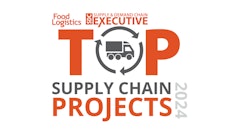
In the report, "Point of View: FDA Food Safety Modernization Act," the authors note that in the wake of the President signing the most sweeping overhaul of food-safety legislation since 1938, food companies will need to meet higher regulatory standards and likely need to go beyond compliance in order to win the loyalty of consumers and investors, gain competitive advantage and protect their brands.
The Centers for Disease Control and Prevention (CDC) estimates that there are 48 million cases of food-borne illnesses in the U.S. each year, resulting in 128,000 hospitalizations and over 3,000 deaths. The recent national outbreak of salmonella in eggs last year resulted in the recall of hundreds of millions of eggs. Other recent examples include tainted peanut butter, cookie dough and fresh bagged spinach that sickened hundreds of people across the country.
The new bill gives the FDA expanded authority and ability to monitor the safety of the food supply, and to take quicker and more effective action against companies that don't adequately protect against food contamination.
"Today's globally extended supply chains mean that, unfortunately, contamination can turn up in more products and more often than in the past," said Carter Pate, who leads the global government and infrastructure teams at PwC. "With the new legislation, food companies at every level will be required to develop and document food safety plans that identify and prevent hazards at each facility."
The report outlines some of the significant features of the legislation, such as requirements to document identification of hazards and implementation of preventive controls and develop defensive plans aimed at preventing intentional contamination if the food is considered to be highly vulnerable.
It also provides examples of leading practices that can help food companies not only comply, but go beyond the proposed rules for highly improved performance. Companies that aspire to be market leaders can start by reviewing their food safety plans, training programs and supply chains, with an eye toward making improvements, the report finds.
"Heightened focus on food safety by consumers, regulators and Congress has created new challenges for the food industry that can result in erosion of a brand overnight," said David Acheson, managing director of Leavitt Partner's Food and Import Safety Practice. "The new food safety legislation is going to make these challenges more acute and the need for change more urgent."
The report can be accessed (no registration currently required) through the PwC Web page for its food safety practice at www.pwc.com/us/foodsafety. More information about PwC's retail and consumer products industry practice is available here.
Related Links
Related Article
- Five Best Practices to Mitigate Supplier Financial Risk — Now is not the time to consolidate resources and scale back risk management efforts
- Checklist: Four Steps to Mitigating Supplier Risk and Protect Your Supply Chain — These four steps ensure you cover every aspect of risk through the entire supplier lifecycle
- Stop Running the Risk of Supplier Failure — 5 questions to ask yourself

























